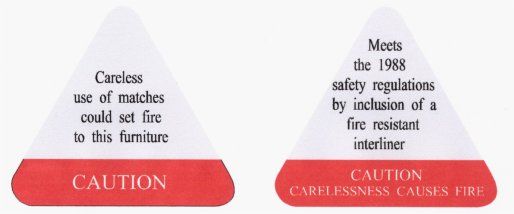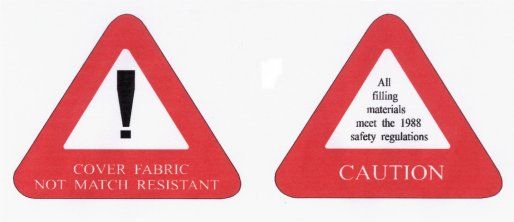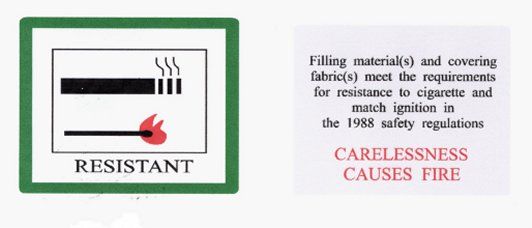Landlord Checklist: Pre-Tenancy Compliance Requirements
Updated in July 2020 to reflect recent updates to electrical safety legislation.
At Home Made, while we’re certain that our clients take their duty of care to their renters seriously, we also understand that it can be difficult to keep up with the evolving regulatory landscape as a residential landlord. This is particularly true in London where, in addition to the prevailing national legislative requirements, each individual borough enforces its own set of regulatory imperatives. Matters are often further complicated by agents who fail to distinguish between internal process and regulatory requirement when guiding their clients through tenancy progression. It can be especially difficult if you are renting out a property for the first time.
To that end, we’ve compiled this simple landlord checklist in order to demystify your compliance obligations and ensure that your property is ready for the start of your tenancy. We know that you’re a great landlord, so let’s make sure you have everything you need to prove it. This checklist covers the following:
- EPC
- Gas Safety Certificate
- Deposit Registration
- Smoke and Carbon Monoxide Alarm Installation
- Furniture Fire Safety
- Licensing
- EICR
Let's get you ready to let!
EPC

An Energy Performance Certificate, or EPC, is a document which provides a general overview of the energy efficiency of a property, the average annual cost of its utility bills, and a series of recommendations for remedial measures that may improve the property’s energy efficiency. Much like the multi-coloured energy labels on new appliances, properties are rated on a scale from A-G, with A being the most efficient. Energy performance assessments may only be carried out by an accredited assessor, and once a certificate has been issued it will be valid for 10 years.
Many landlords operate under the misconception that an EPC is only required for marketing purposes. This is absolutely not the case – it is a regulatory requirement that any property marketed for let must have a valid EPC at grade E or above. It is essential to commission an EPC prior to advertising a property, and you must undertake every reasonable effort to acquire a valid certificate within the 28-day grace period permitted after your property has gone live on the market. All property listings must contain the first page of the EPC, and renters must be provided with a copy of the certificate before the commencement of the tenancy.
It is easy to see how confusion arises, as our proprietary research indicates that 50% of property listings on Rightmove do not show the correct EPC information even after the expiration of the marketing grace period. Such poor regulation within the traditional industry leaves landlords and renters exposed and perpetuates uncertainty with regards to legitimate compliance requirements.
There are serious consequences for any landlord who fails to provide the correct EPC documentation to renters prior to the commencement of a tenancy:
- A Section 21 notice to evict renters from the property will be invalidated.You will not be able to serve notice until the relevant requirement has been met.
- Fines of up to £5000 for renting a property without an EPC, or for renting a property that does not meet minimum energy efficiency standards.
- The relevant enforcement authority can ‘name and shame’ landlords by publishing details of the breach and any penalties imposed.
Gas Safety Certificate

All landlords must commission an annual gas safety inspection with an accredited supplier listed on the national Gas Safe Register. The engineer will attend the property and inspect every appliance to ensure that it is burning correctly, suitable for the room it is located in, adequately ventilated, physically stable, and that all flues and chimneys are in good working order.
Following completion of the gas safety inspection, you must ensure that current renters are provided with a valid gas safety certificate within 28 days following the expiration of the previous certificate. Any new renters should be provided with a valid gas safety certificate at the commencement of their tenancy and before they occupy the premises.
A gas safety certificate must include the following vital information:
- The address of the property where the inspection was carried out.
- The landlord’s name and address (or their agent where applicable).
- The date on which the check was completed.
- The name, signature, and gas safety registration number of the engineer who was commissioned to carry out the inspection.
- A description of each gas appliance/flue and its location in the property.
- Any safety defects identified and the remedial action required to correct the problem.
- A confirmatory summary of the results of each operational safety check carried out during the inspection.
There are serious consequences for failure to comply with gas safety legislation:
- A Section 21 notice to regain vacant possession the property will be invalidated. It won't be possible to serve notice until the relevant
- Potential fines.
- Any insurance policy taken out on the property or its contents may be invalidated.
- A prison sentence of up to 6 months. See here and here for two example cases.
- A landlord can be charged with manslaughter if a renter dies due to faulty gas appliances. Though unusual, it is not unprecedented.
Renter safety should be of paramount important to all landlords, which is why penalties for ignoring gas safety obligations are particularly severe. Keep up to date with your annual gas safety requirements to protect your renters’ good health and your peace of mind.
Deposit Registration
All landlords renting a property on an assured shorthold tenancy must register deposits with one of the three government-backed tenancy deposit schemes. The approved schemes are:
- Tenancy Deposit Scheme
- Deposit Protection Service
- MyDeposits
Each scheme offers landlords two options: ‘Custodial’ and ‘insured’. In a custodial arrangement, the deposit scheme will hold the deposit directly and protect it for free. Under an insured scheme, the landlord (or agent) holds the deposit in their own bank account and pays the protection scheme to insure it.
Following the introduction of the Tenant Fee Act in June 2019, tenancy deposits are now capped at a maximum of 5 weeks’ rent where the annual rent is less than £50,000 and 6 weeks’ rent where the annual rent exceeds £50,000.
It is essential that tenancy deposits are registered within 30 days following the receipt of the funds from the renter, otherwise the scheme will not protect the funds. Within 30 days of receiving the deposit, each scheme requires you to provide renters with the following documents:
- The Prescribed Information.
- The deposit protection scheme leaflet.
These documents confirm all of the relevant details pertaining to the deposit, explain why part or all of the deposit would be retained at the end of the tenancy, advise renters how to apply to return their deposit at the end of the tenancy, list any relevant persons who paid the deposit on behalf of the renters, and inform renters how to proceed if there is a dispute over the amount of the deposit to be returned at the end of the tenancy. Failure to serve these documents results in penalties equal to those for failing to register the deposit at all.
Landlords who fail to protect the tenancy deposit with one of the three government-backed schemes and provide the required documents could face significant penalties for their negligence:
- A Section 21 notice to regain vacant possession of the property could be invalidated. It will not be possible to serve an eviction notice until any court-ordered fines have been paid in full.
- A court may order the landlord to pay renters up to three times the amount of the deposit within 14 days. This is equivalent to a loss of 15 weeks’ rent.
For further information regarding the rules and regulations governing tenancy deposits visit the government housing and local services guideline for landlords.
Smoke & Carbon Monoxide Alarm Installation

In order to ensure compliance with the relevant regulation, private rented sector landlords must ensure that rental accommodation is equipped with the following:
- At least one smoke alarm installed on every storey of the rental property.
- A carbon monoxide detector in any room which contains a solid fuel burning appliance (e.g. a wood-burning stove or coal fire).
Once the appropriate hardware is installed, it is your responsibility as a landlord to ensure that all alarms are in good working order at the start of each new tenancy. Following initial checks at the start of the tenancy, renters must take responsibility for their own safety and complete regular tests of all alarms as required.
Though bare minimum compliance standards do not compel landlords to install carbon monoxide detectors unless the above applies it is best practice to ensure that one is fitted anyway – particularly if there are gas appliances in the property. Renter welfare should be a top priority for all reputable landlords and doing everything in your ability to provide renters with safe accommodation will ensure that you have the best possible relationship throughout the tenancy.
Regulatory enforcement is the responsibility of the local authority. If the enforcing agent has reasonable grounds to suspect non-compliance, they will issue a remedial notice requiring the landlord to fit and test alarms with 28 days. If the landlord fails to act within the 28 days following the order, the local authority can levy a civil penalty of up to £5000.
Furniture and Furnishings Fire Safety
It is the landlord’s responsibility to ensure that all furniture provided in their rental property is compliant with the Furniture and Furnishings (Fire Safety) Regulations 1988. The regulations set the minimum standards of fire resistance required for domestic upholstered furniture and other upholstered products. Furniture and upholstery covered by the regulation includes:
- Permanent covers for furniture, covers for non-visible furniture, and loose and stretch covers for furniture.
- Beds of any size, including the mattress and headboard.
- Pillows, scatter cushions, and seat pads.
- Sofa beds, futons, and similar convertible furniture.
- Nursery furniture.
The regulations do not apply to bedding (i.e duvets, linens, pillowcases, mattress protectors, etc), curtains, or carpet. Furniture produced prior to 1950 is also exempt. Furniture which complies with the legislation should display a permanent label indicating the ignition resistance of the item of the furniture. Examples can be found below:



Regulations are enforced by the local Trading Standards Office and penalties for non-compliance can be severe. Landlords can face a maximum fine of £5000, or up to six months in prison for the most serious breaches.
Licensing
Since 2006, the government has operated a mandatory licensing scheme applicable to all rental houses in multiple occupation (HMOs). HMOs are defined as properties occupied by five or more persons forming two or more households, where at least one renter pays rent. Families are exempt from regulation, as a household is defined as occupiers who are immediately related.
Student accommodation is a common example, but occasionally professional sharers may band together to form a composite household governed by mandatory licensing. HMO licensing applies to the following housing categories:
- Houses with shared basic facilities (i.e a bathroom or kitchen).
- Self-contained flats where some basic facilities are in shared use.
- Converted buildings comprising a mixture of self-contained and non self-contained residential units.
You must have an HMO licence if you’re renting out a property which meets the above criteria. A licences are valid for 5 years and a separate licence is required for each HMO you run as a landlord. You must apply for your licence with the local authority and ensure that you meet the following conditions:
- Your property is suitable for the number of occupants included in the tenancy agreement.
- You must demonstrate that you (or the managing agent) are considered ‘fit and proper.’ This means that you have no criminal record and no recorded breaches of laws or codes of practice governing landlord conduct.
- Smoke and carbon monoxide detectors are installed and maintained.
- You can provide a valid gas safety certificate (updated certificates must also be sent to the council every year).
- You can provide safety certificates for all electrical appliances.
Your local authority may choose to impose additional conditions at their discretion. The average cost of a licence is £500 for 5 years, though this will vary according to local authority.
Licensing is a frequent source of confusion for landlords, particularly those renting properties for the first time. It can be particularly difficult if you let property in a borough governed by obscure and ill-publicised additional licensing requirements. For instance, the borough of Camden operates an additional licensing scheme requiring landlords to purchase an HMO licence if they let to three or more renters forming two households. The borough of Newham operates an additional scheme requiring all private landlords to purchase a license to let any property in the borough. The best thing to do is to contact your local authority directly to ask them about any additional licensing schemes that may be in operation regardless of the number of renters you intend to let to.
There are serious consequences for failure to comply with licensing regulation. As per the government website, local authorities have the discretionary power to issue an unlimited fine to landlords renting out an HMO.
In addition to a hefty fine, renters living in a property owned by a convicted landlord can petition for a rent repayment order that refunds any payments they have made in the preceding 12 months. In one infamous example, a landlord in Leeds was ordered in court to repay £15,000 to his renters after it transpired that he had failed to acquire an HMO licence.
HMO licences exist to help local authorities maintain standards in properties housing multiple occupants, and their requirements should not prove burdensome to any reputable landlord who follows the existing rules governing all types of rental property. The extra rental yield should also more than justify the additional upfront cost to ensure that you have the proper documentation. However, it is essential that you touch base with your local authority to make sure that you are fully compliant with all relevant local schemes. The penalties are steep, and we don’t want you to be left out of pocket due to an honest mistake.
To learn more about landlord licences and whether you need one to let your property consult our comprehensive guide.
Electrical Installation Condition Report

As of 1st July 2020, all landlords in England will be required to instruct an appropriately qualified person to carry out an EICR inspection on their rental properties every 5 years and provide a certificate to new renters before they move in. Where there is an existing tenancy, landlords must commission an inspection before 1st April 2021 and provide renters with a copy of the EICR certificate within 28 days.
An Electrical Installation Condition Report (EICR) is a certificate that details the safety and overall condition of all the electrical installations and fittings in a property. The report is produced following an in-depth assessment carried out by a qualified electrician. The electrician will complete a visual inspection and perform some tests on installations to confirm that everything is functioning safely and is compliant with minimum regulatory standards. The report will note any defects identified and advise what remedial steps must be taken.
Landlords letting private rented accommodation in England must carry out EICR inspections every 5 years and ensure that renters are provided with a copy of the certificate. To demonstrate compliance landlords must ensure they do the following:
- Book an inspection with a qualified assessor (an electrician) and obtain a certificate detailing the results of the inspection and the date of the next required inspection. This must be done prior to the start of any new tenancy (including renewals and statutory periodic tenancies created following the end of a fixed term) commencing after 1st July and by 1st April 2021 for existing tenancies.
- Provide incoming occupants with a copy of the EICR before they move into the property.
- When an EICR is replaced, provide a copy to occupants within 28 days of the inspection.
- Provide an EICR to the local authority within 7 days where a copy is requested or face potential penalties.
- Provide an EICR to renters within 28 days if they request a copy in writing.
- Provide an EICR to any prospective occupant (e.g someone in the process of making an offer on the property) within 28 days if this is requested.
Any regulatory breaches must be further investigated or remedied by a qualified person within 28 days or sooner if the report recommends complying within a shorter timeframe. Once the necessary works have been completed, the landlord must:
- Obtain written confirmation from a qualified person that work has been carried out and that either electrical safety standards have been met or that further investigative or remedial work is required.
- Provide that written confirmation along with a copy of the original report requiring investigative or remedial work to each resident of the property within 28 days of completion of the work.
- Provide the same written confirmation and copy of the original report to the local housing authority with 28 days of works being completed.
If the outcome of any further investigative work is that there is more investigative or remedial work required then the above process must be repeated until electrical safety standards are satisfied.
Local authorities are responsible for enforcing electrical safety standards, and they have the power to impose fines of up to £30,000 per breach of the legislation and/or arrange for remedial work to take place at the property and recover costs from the landlord. To read more about EICR certificates and the recent changes to legislation check out our guide.
At Home Made, we offer a hybrid lettings solution that adds value at every stage of the rental process. With our game-changing new landlord platform, The Property Wallet, we offer London landlords exceptional tenant-find and property management services for a low monthly fee.
- Avoid expensive upfront fees and spread the cost of marketing your property with the option to pay monthly.
- Free rent collection and arrears chasing.
- Sign off and see all charges and payments in your dashboard.
- Real-time updates on marketing, viewings, and offers.
Prices start from just £50+VAT/mo for tenant-find and £60+VAT/mo for management. Alternatively, you can pay a one-off upfront fee of £1,200+VAT for our tenant-find service.
If you would like to speak with us about your property needs, contact us via our website to find out how we can help. If you're ready to get started, book your free valuation here.
Book valuationCheck out more of our landlord advice here and follow us on Twitter, Linkedin, and Instagram for regular updates on industry compliance standards, market insights, and Home Made company news.




